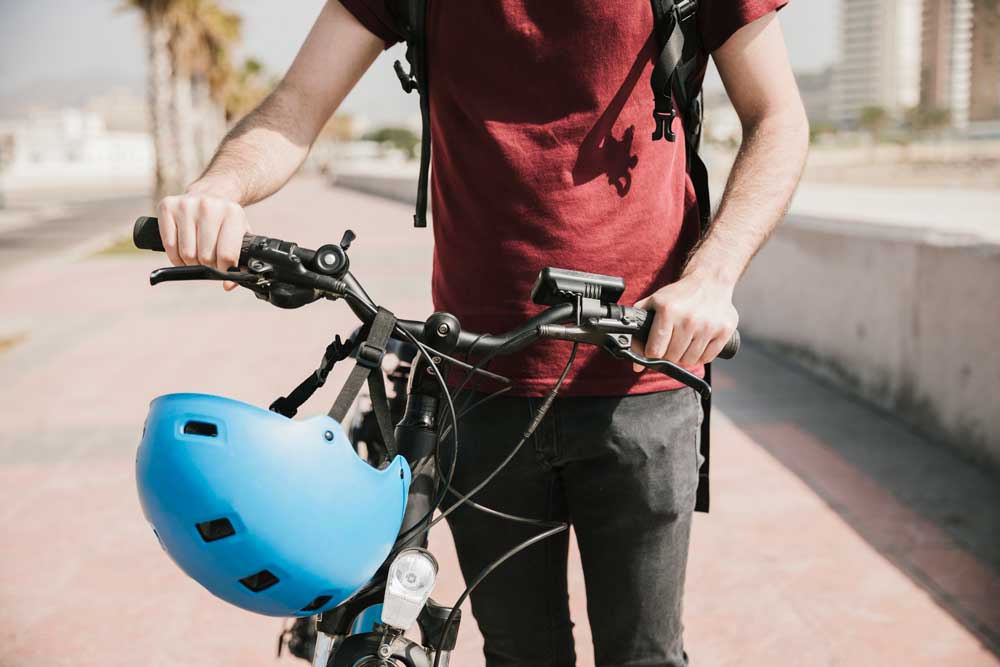UK Government reluctant to offer electric bike subsidy
The significance of e-bikes is that they enable regular cycling journeys. With a nationwide network of safe routes, one in five journeys could be completed by bike. That proportion would be as high as one in four if widespread ebike access were available.
Ebikes are one of the most difficult types of bike to access financially, costing around £1,000.
Some individuals are self-employed, while others are on welfare or retired and thus ineligible for tax-free bikes under the Cycle to Work programme.
An electric bike enables people to travel to places that I otherwise would not.
Research has found that a national network of safe routes could result in one in five trips being made by bike. With widespread ebike access, that proportion would be as high as one in four.
People can substitute car travel with electric bikes.
How much nearer could electric bikes take us to meet our fast-approaching carbon-reduction targets if 27% of UK greenhouse gas emissions came from transportation and 91% of that figure came from roads?
We know that eliminating the barriers to electric bike ownership increases adoption—and a purchase subsidy is a powerful way to achieve this.
E-bikes are the only electric vehicle that is not subsidised in the UK, but they are the most effective and economical at replacing car journeys.
Between 40 and 60% of ebike trips on the European purchase subsidy scheme were found to replace car trips in a 2019 report by the Bicycle Association.
People who received purchase subsidies in France increased their Cycling from an average of 200km to 1,400km a year and reduced their car trips by 660km.
According to the Bicycle Association, ebike grants would cut carbon at around half the cost of electric car subsidies. In addition, many people would not have ridden at all without an electric bike.
The cycling industry is, not surprisingly, advocating for funding for ebikes instead of electric cars, after the UK Government slashed electric car purchase subsidies.
Although Cycling UK has launched its ‘Cycling made e-asy‘ ebike programme, which provides bike loans and test rides, the experiment is limited to five pilot areas and does not include purchase subsidies.
Some believe allowing ebike usage on trails would only benefit those with money to spare, who they believe would have bought an e-bike. Would the same not also be true for electric vehicles?
A bike that is powered by electricity is a great tool to have fun and be practical.
Our reliance on driving is proving unsustainable and exclusionary, owing to the energy and cost-of-living crises. In addition, wealthier individuals own more vehicles, and fuel subsidies disproportionately assist them.
People are trapped in transport poverty and prevented from participating fully in society because we fail to provide cheap non-car transport, from decent public transport to a network of safe walking and cycling routes.
During a pilot programme in Cornwall distributing free ebikes to rural jobseekers, one participant remarked on the almost biblical change in their life after borrowing one. I know where I would rather my taxes were allocated.
E-bikes can not only make biking easier, but they can also make the activity more enjoyable and provide health benefits. In addition to flattening hills, ebikes can make biking more enjoyable and practical tools.
People who declare that ebikes are cheating do not comprehend them: you still pedal—and no one says taking a bus or driving is cheating.
E-bikes are simply the right tool for the job.
How wonderful it would be if someone who had not ridden in years could get around by pedal power (or get around at all). It would eliminate the hassle and expense of driving.
We must realise how much electric bikes can transform our lives.

